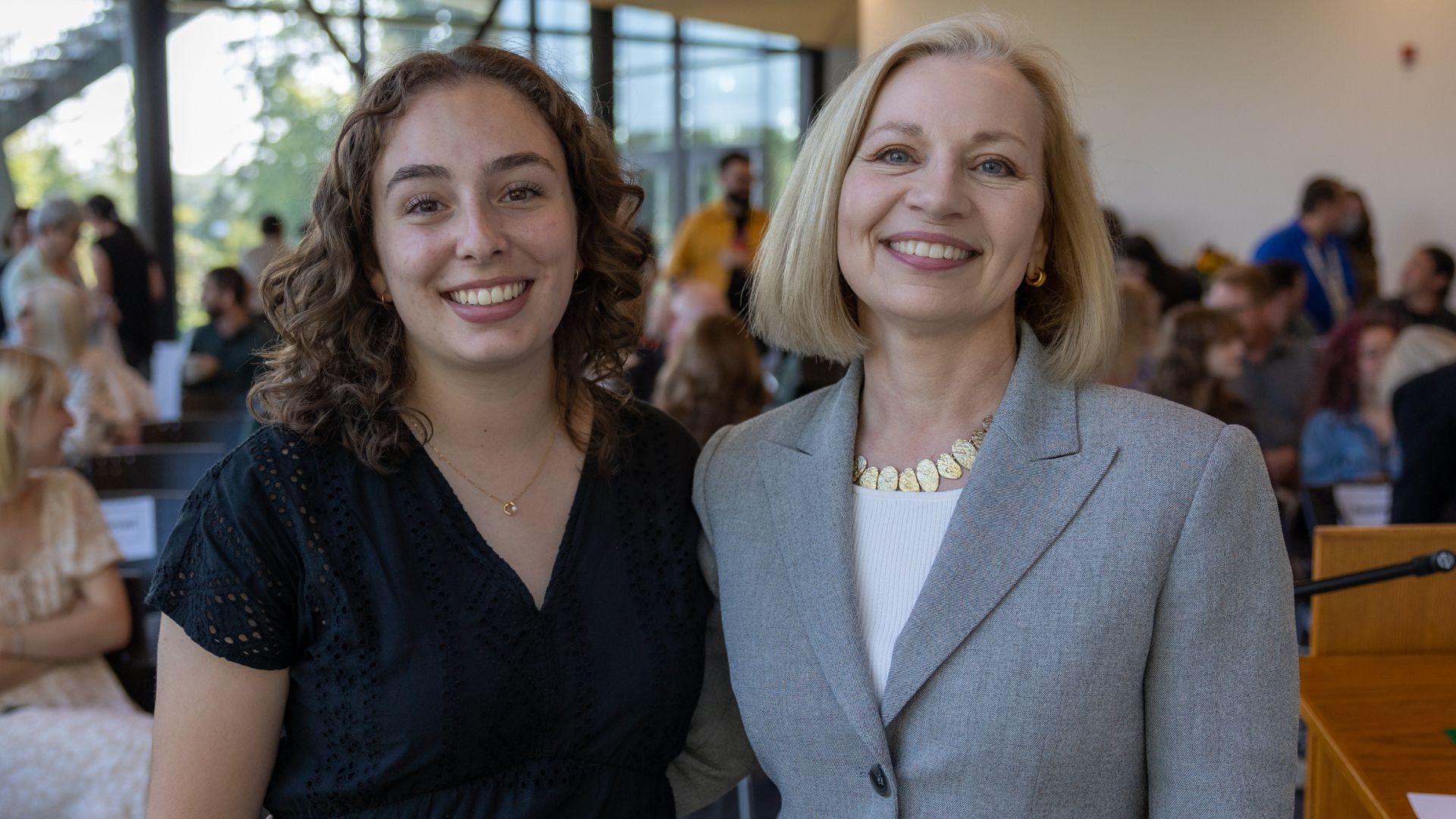Polling Pitfalls: Award-Winning Humanities Research Unveils How Data Flaws Impact Election Outcomes
September 26, 2024
 From left, Laura Page '20 (Champlain College) stands with Dr. Cristine de Clercy, Trent’s Jarislowsky Chair in Trust and Political Leadership, during the Humanities & Social Sciences Celebration of Excellence.
From left, Laura Page '20 (Champlain College) stands with Dr. Cristine de Clercy, Trent’s Jarislowsky Chair in Trust and Political Leadership, during the Humanities & Social Sciences Celebration of Excellence.
Trent research by Laura Page ’20 (Champlain College) explores the problem of bias in opinion polls and major-media reporting during elections
Research by Trent University student Laura Page ’20 (Champlain College) highlights the problem of bias among polling companies and major-media reporting during the 2008 Canadian election, contributing to the public’s broader understanding of democratic processes.
Laura, who recently graduated with a B.A. Honours in Political Science, says her research drew heavily from skills learned in a senior-level quantitative methods course taught by Dr. Cristine de Clercy, Trent’s Jarislowsky Chair in Trust and Political Leadership.
“This is a sincerely intelligent study of bias that shows one way that Canadians can do a better job of understanding the virtues and limitations of opinion polls,” says Professor de Clercy.
Laura’s research shows that some of the nation’s top polling companies conducted polls during the summer months – a time known for providing unreliable data as many people are on vacation and unplugged from the news, therefore compromising the representative nature of the polls. The polls were also flawed because the sample sizes were considerably smaller than what is considered best practice.
Using this unreliable data as a baseline for comparison, several major media outlets went on to present the public with a ‘two-horse race narrative’ by focusing only on data for the Liberals and Conservatives. Laura’s research shows the media dismissed the data from the other federal parties and focused almost exclusively on the rise and fall of polling percentage points, dragging attention away from important policy issues such as housing, food security, and Indigenous rights.
In recognition of her exceptional research, Laura was awarded the 2023-24 Denis Smith Prize for best paper by a fourth-year Political Studies student, presented during the Humanities & Social Sciences Celebration of Excellence.
“Laura's major research paper is an impressive demonstration of her quantitative learning: by analyzing the error margins of election-period public opinion polls, she convincingly shows why the media reporting of these election polls was biased, and so flawed,” Prof. de Clercy said. “If the sources are biased and people can’t trust opinion polls – which many people use to inform their vote – then the quality of democracy is reduced.”
Laura says her Humanities & Social Sciences education has advanced her critical-thinking skills and helped her understand the complex interaction of societal events.
“It empowers us to understand the social world in all of its complexity,” she says.
The Denis Smith prize was established by professor emeritus Dr. Denis Smith who led a distinguished career at Trent University before concluding his career at a different university. Dr. Smith met Prof. de Clercy when she was a graduate student.
“Denis Smith is a widely respected researcher and a simply dazzling lecturer who made a strong impact on our understanding of key issues in Canadian foreign policy,” Prof. de Clercy says. “It is a real pleasure to now present the Denis Smith best essay Prize to excellent fourth-year students like Laura Page.”
Laura is now pursuing a Masters degree in Canadian Studies and Indigenous Studies at Trent.
Learn more about how you can support the Humanities & Social Sciences at Trent University.